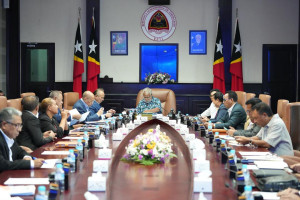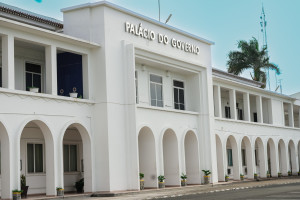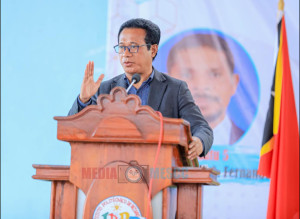Government Reinforces Commitment to Higher Education Reform and Quality

Since the beginning of its mandate, the IX Constitutional Government has been implementing a program of structural reforms in various strategic areas, with the aim to boosting the country’s economic and social development, strengthening institutions and promoting the training of national human resources. In the education sector, and particularly in higher education, the Government made it a priority to ensure a comprehensive system, expanded and regulated by strict quality standards, which responds to the country’s needs, respects the National qualifications System and contributes to increasing the competitiveness of the national economy.
In this context, and in line with commitments made in its Program, the Government has adopted a series of measures aimed at strengthening the quality of higher education, diversifying the training offer in strategic areas for development and ensuring an adequate link between academic training and the needs of the labour market. The approval of the new Higher Education Framework Law (Law no. 6/ 2024, of July 17) is a key milestone in this process of modernization and qualification of the sector. 
Following this reform and with a view to its implementation, the Government approved, through Government Resolution no. 23/2025, of April 11, the suspension of the creation and opening of new cycles of study in higher education in areas of knowledge already widely covered by the existing offer in higher education institutions. This measure aims to ensure that the development of higher education in Timor-Leste is carried out with rigor, quality and in line with the country’s actual needs.
The suspension determined by this Resolution covers new courses on bachelor’s, bachelor’s degree, postgraduate, master’s and doctoral courses in areas such as Law, Management, Accounting, Civil engineering, Computer Engineering, Public Health, Nursing, Midwifery, Public Administration, Political Science and International Relations. The Resolution also determines the immediate closure of unauthorized doctoral course in operation.
This decision is part of the Government strategy to avoid saturating the job market with professionals in areas where there are already enough graduates, promoting a better match between the educational offer and the country’s needs. At the same time, it allows efforts to be concentrated on approving the necessary legislation to regulate the sector, including curriculum planning, the opening, licensing and accreditation of new courses and higher education establishments. 
The suspension will be lifted as soon as the complementary legislative framework is completed, guaranteeing the necessary conditions for the expansion of higher education to take place in a responsible, sustained and excellence-oriented manner.
The Government reaffirms its commitment to continue working to consolidate a quality, diversified and inclusive higher education system, contributing to the construction of a more qualified, dynamic and prepared society for the opportunities and challenges of the future.END










































